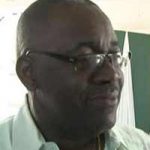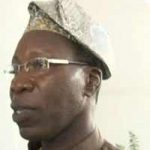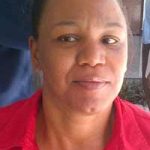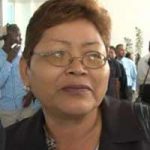THE Guyana Chronicle solicited the opinions of several persons after Monday’s national consultation on the Anti-Money Laundering and Countering the Financing of Terrorism (AML/CFT) Bill, and the consensus was that, criminals or not, real Guyanese people will face real challenges if Guyana is unfortunately further blacklisted.The views of many of these average men and women, which speak volumes, are stated hereunder.

RAS SIMEON SELASSIE, President of the Guyana Rastafarian Council: “As a representative of the Rastafarian community, two things I noticed: One of the major concerns was giving the police the authority to actually stop people and deal with them based on suspicion.
“As Rastafari, we know too well how police suspicion could be abused, so I was a bit concerned about that. And I was thinking that a recommendation should be that if police are to stop people based on suspicion, they should justify that suspicion, so as to differentiate between discrimination and reasonable suspicion.
“Secondly, we are also concerned about the implication that this bill would have on the Rastafarian community, knowing that through the practise of our culture we are deemed criminals and drug traffickers. So that is a concern for us, ‘cause if a Rastaman…. Now, as you know, he would be suspected…. We need the bill to be passed, and the proposed amendments that they are looking at can be looked at properly.
“I think the Government’s position is fair…somewhere along the line.”

PRISCILLA TORRES, Region Nine Community Development Officer: “It is going to have a lot of negative impact on our community, especially in terms of getting monies for development projects.
“The Amerindian communities have a five-year plan, and the support we get from international sources will be affected. They already have work started. I am thinking about the impact, and I think that Guyana will have a lot of problems if we do not pass this bill.”

AHSAN ULLAL MANGAT, Missionary-in-Charge of the Ahmadiyya Muslim Jama’at in Guyana: “We have heard people talking about the time it takes now to do financial transactions, and it is no lie. We have experienced first-hand what it is; and indeed, doing business is being affected. We think the bill should be passed so as to limit the challenges we have to face as a country.”

JASODRA BALKISSOON, Pensioner: “I am not working; I at home now, living with my son who does do garden work.
“What I think is that we should get the bill passed. The longer they take, the longer the country will struggle.
“My husband died 13 years now, and my daughter is overseas. I really think they need to come to a solution and let the country have less to worry about.”

BOBBY VIEIRA, Overseas-based Businessman: “As a Guyanese who lives abroad, I hope that good sense would prevail and all parties will get together and amicably bring this thing to a settlement as early as possible.
“We all know that it would affect the country and the region in one way or the other…. At the end of the day, it is the concern of the average Guyanese which is of importance; and therefore, the best thing to do at this point in time, after listening to all the comments, I think we need to get together as adult and responsible leaders and sort this out.”

AKIL VICTORINE, Student with the YEST Programme: “I am a business student, and what I see is that business will drop; and the politicians have to do something more.”

MOHAMMED NOOR, Rice Farmer: “If the bill don’t pass, it will affect farmers. How we going to get we business done? When we collect money from the miller, how we going to walk with it? Everything will change.
“We will get ‘hambug’. When push come to shove, we will have to do small operations. We will definitely be affected.”
BALOGOON OBA OSHOGBO, Clinical Psychologist: “As a country, we have to fulfill that which is the international requirements.
“From all information at hand, those requirements have been fulfilled by what was tabled in Parliament. The other aspect is the amendment, and like every part of the world, different parties or political activists will choose moments when they can leverage the most pressure.

“We need to separate those two things…. Guyana has fulfilled what is required regionally and internationally. Secondly, our own internal dynamics are forcing us to deal with what is outside the ambit of the CFATF and FATF, and we need to get around that.”

YVONNE D’ABREAU, Member of the National Council on Disability:
“The consultation was definitely an eye-opener, and it was good so that we know the position. It was a shame that the Opposition was not here.
“What we have to do is have the bill passed, because persons with disabilities – like myself – will be affected. Things have to change. We have made progress as a group, and with different partners who give money for different projects, and we are moving. We can’t have the work stopped because of the bill.”
PATRICIA SINGH, Public Servant: “Listening to the President and comments made by others, I think it’s important that we come together as a nation to avoid all of the negativity that can occur, and that has started to occur, with regard to the passing of this bill.

“I think we should lay aside politics and do what is right for the Guyanese people.”
By Vanessa Narine


.jpg)











